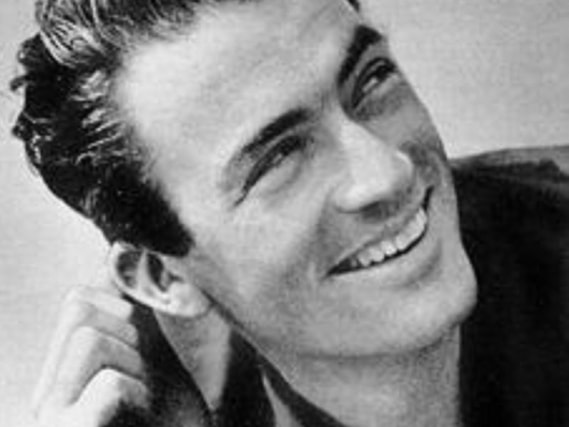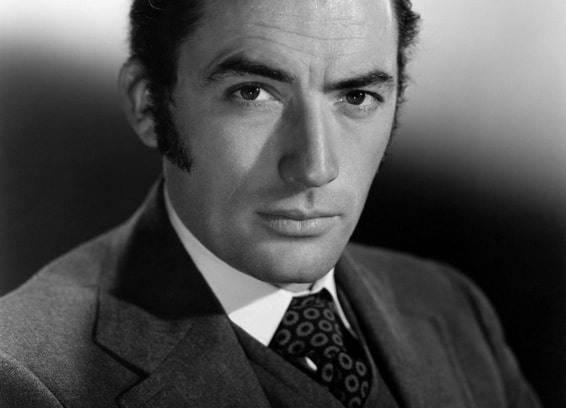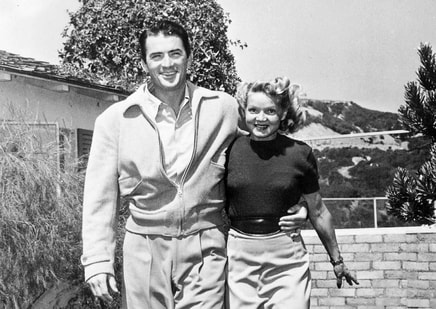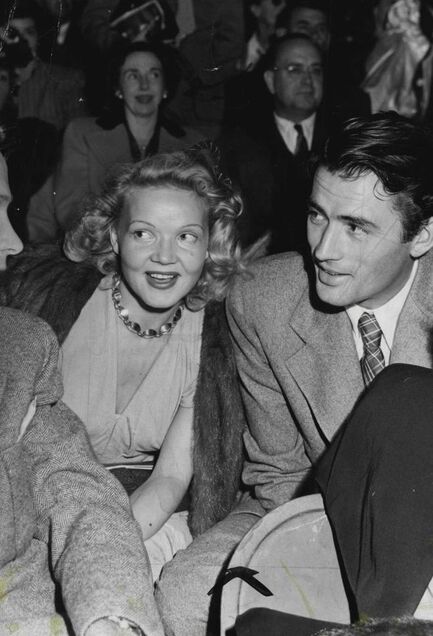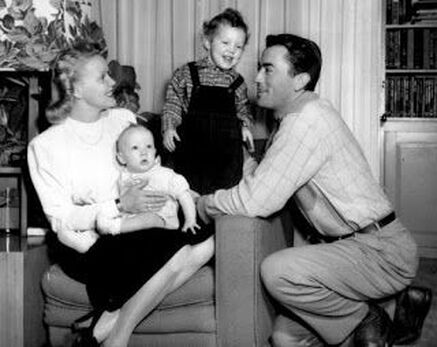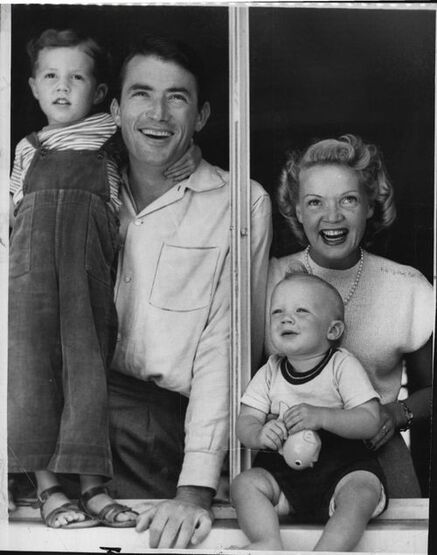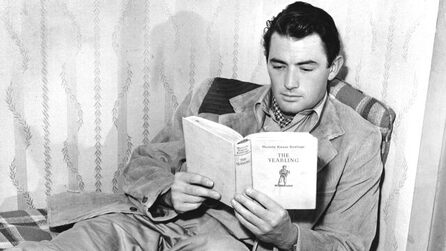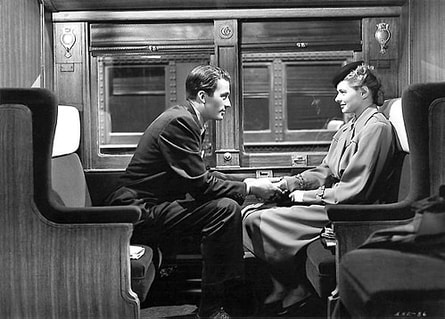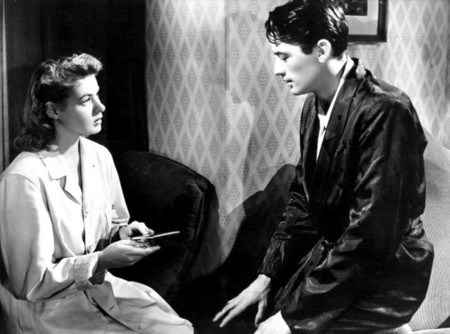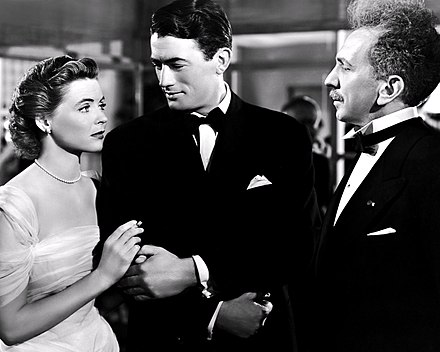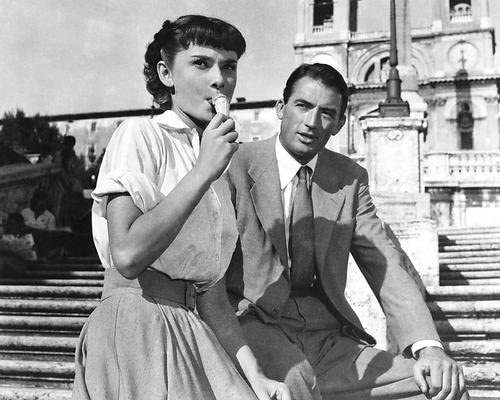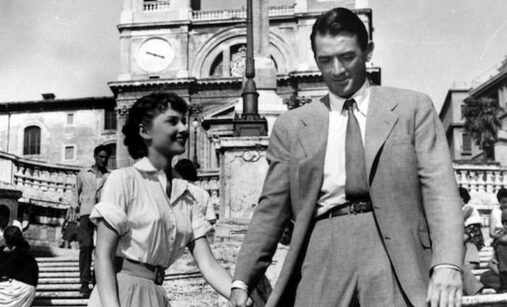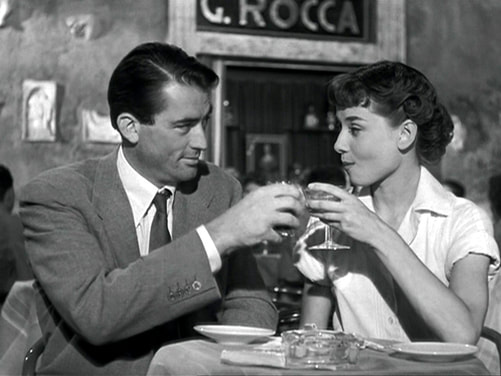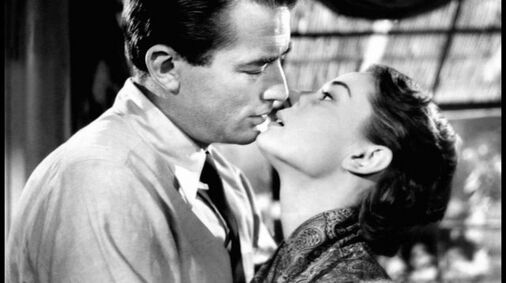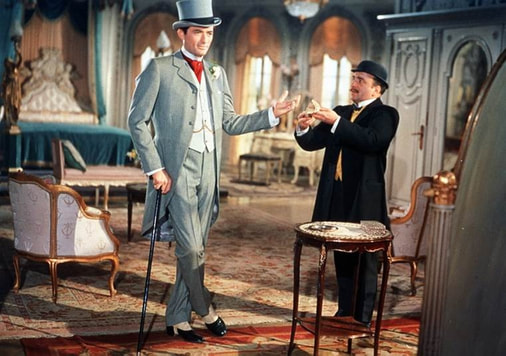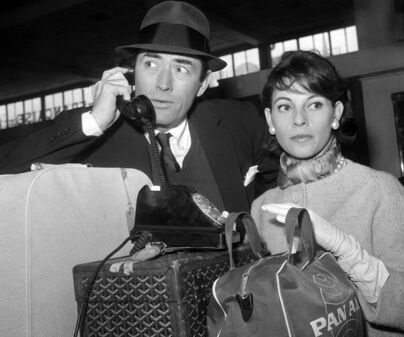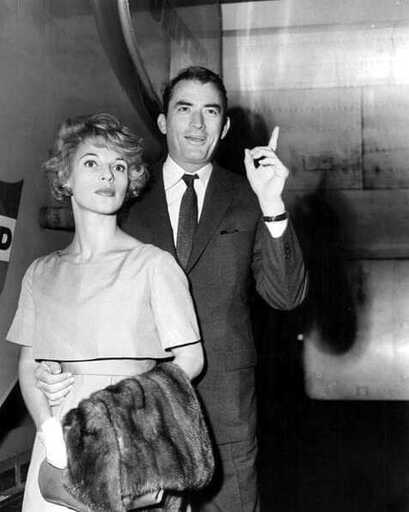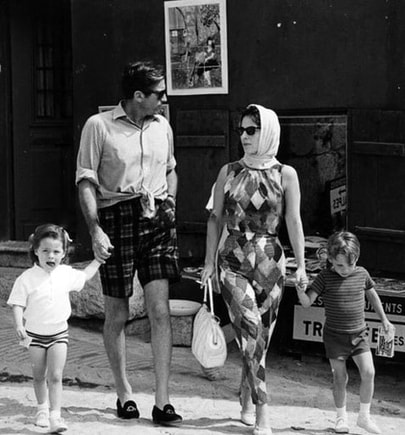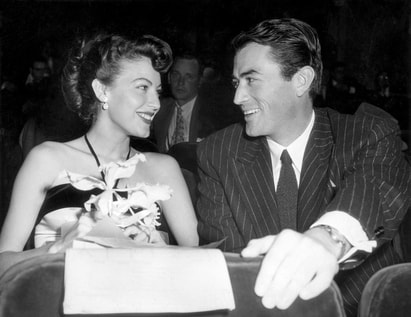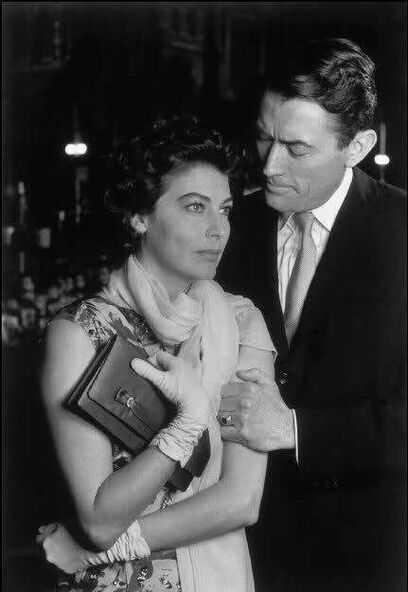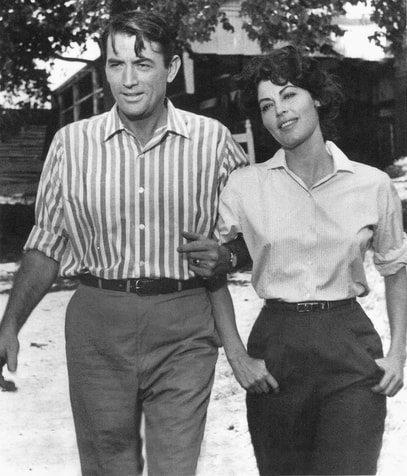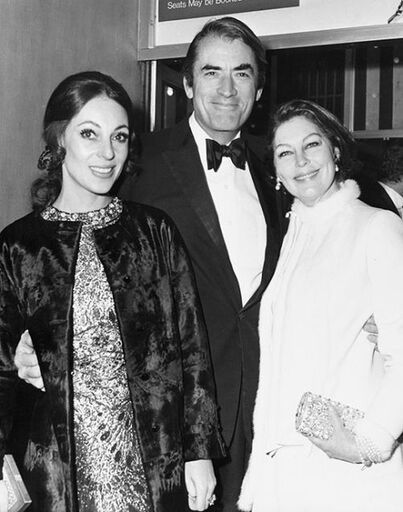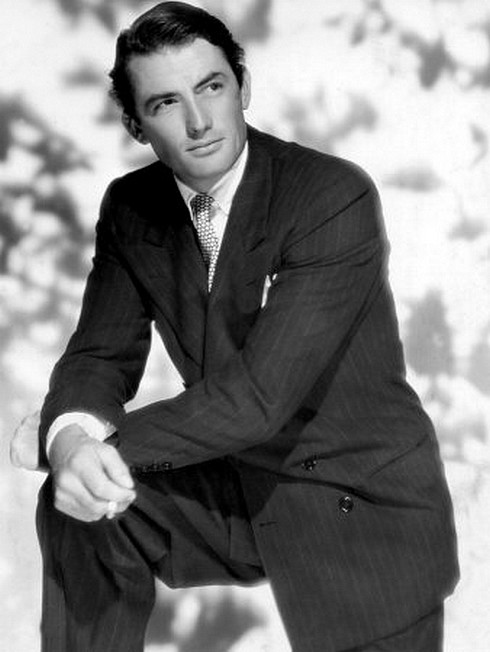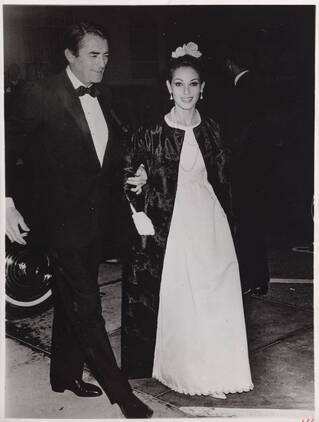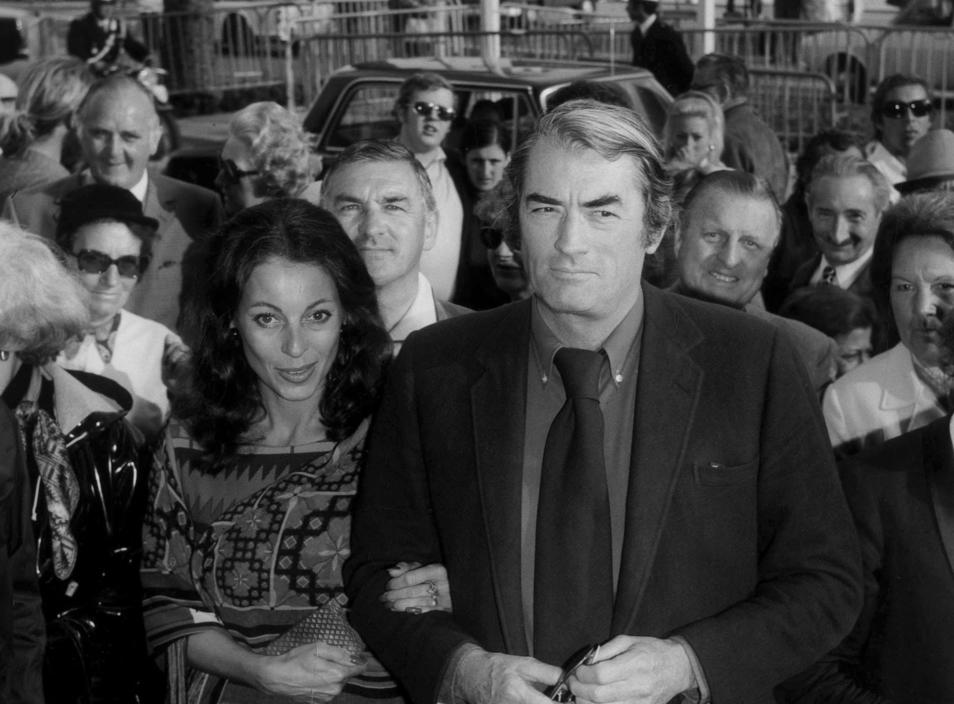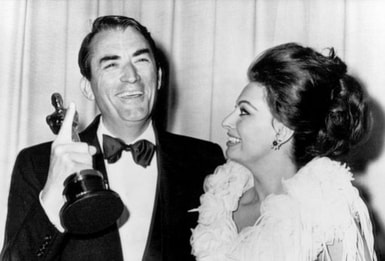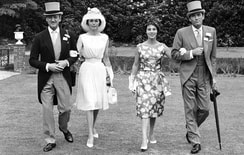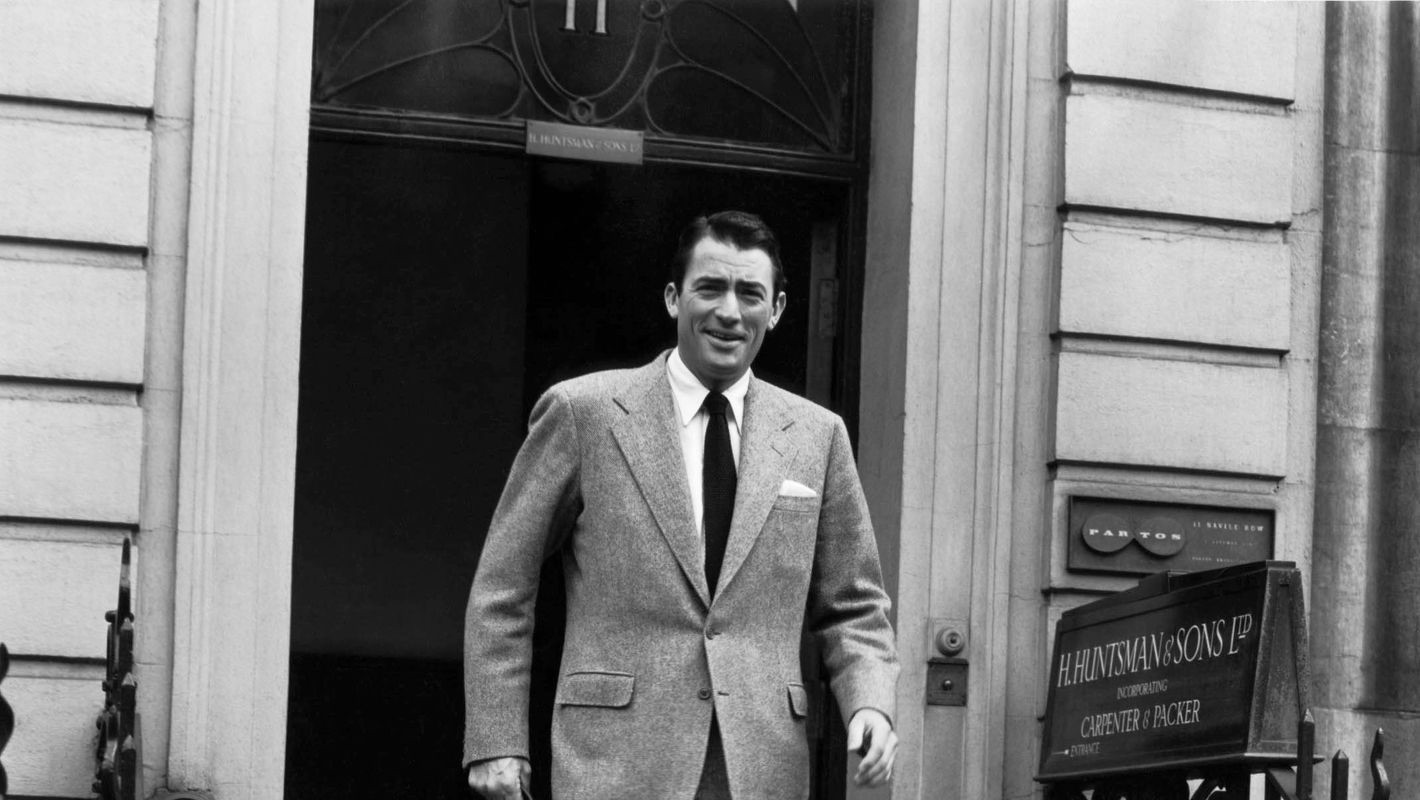ProfileEldred Gregory Peck (April 5, 1916 – June 12, 2003) was an American actor. He was one of the most popular film stars from the 1940s to the 1960s. In 1999, the American Film Institute named Peck among 25 Greatest Male Stars of Classic Hollywood Cinema, ranking him at No. 12. After studying at the Neighborhood Playhouse with Sanford Meisner, he began appearing in stage productions, acting in over fifty plays and three Broadway productions. Peck first gained critical success in The Keys of the Kingdom (1944) which earned him his first Academy Award nomination. He starred in a series of successful films, including romantic-drama The Valley of Decision (1944), Alfred Hitchcock's Spellbound (1945), and family film The Yearling (1946). Peck reached global recognition in the 1950s and 1960s, appearing back-to-back in the book-to-film adaptation of Captain Horatio Hornblower (1951) and biblical drama David and Bathsheba (1951), as well as in Roman Holiday (1953) co starring Audrey Hepburn, which earned Peck a Golden Globe award. He won the Academy Award for Best Actor for his performance as Atticus Finch in To Kill a Mockingbird (1962), an adaptation of the modern classic of the same name which revolved around racial inequality, for which he received universal acclaim. Peck was also active in politics and philanthropy. President Lyndon B. Johnson honored Peck with the Presidential Medal of Freedom in 1969 for his lifetime humanitarian efforts. Peck died in his sleep from bronchopneumonia at the age of 87. BiographyEldred Gregory Peck was born on April 5, 1916, in La Jolla, California, to Bernice Mae (1894–1992), and Gregory Pearl Peck (1886–1962), a chemist and pharmacist. He was raised as a Catholic. Peck's parents divorced when he was five, and he was brought up by his maternal grandmother, who took him to the movies every week. She died when he was 10, At 14, he moved back to San Diego to live with his father. At University of Berkeley, Peck's deep, well-modulated voice gained him attention, and after participating in a public speaking course, he decided to try acting. He appeared in five plays during his senior year, including as Starbuck in Moby Dick. Peck would later say about his years at Berkeley that "it was a very special experience for me and three of the greatest years of my life. It woke me up and made me a human being." Peck did not finish the university however, and headed to New York City to study at the Neighborhood Playhouse with the legendary acting teacher Sanford Meisner. He was often broke, and sometimes slept in Central Park. His stage career began in 1941, when he played the secretary in George Bernard Shaw's play The Doctor's Dilemma. He made his Broadway debut as the lead in Emlyn Williams' The Morning Star in 1942. Peck's acting abilities were in high demand during World War II because he was exempted from military service, owing to a back injury suffered while receiving dance and movement lessons from Martha Graham as part of his acting training. Peck performed in a total of 50 plays, including three short-lived Broadway productions, 4–5 road tours, and summer theater. In October 1942, Peck married Finnish-born Greta Kukkonen (1911–2008), with whom he had three sons: Jonathan (1944–1975), Stephen (b. 1946), and Carey Paul (b. 1949). They were divorced on December 31, 1955. Peck's eldest son was found dead in his home on June 26, 1975, in what authorities believed was a suicide. After gaining stage recognition, Peck was offered his first film role, the male lead in the war-romance Days of Glory (1944), directed by Jacques Tourneur, alongside top-billed Tamara Toumanova, a Russian-born ballerina. The film lost money at the box office, disappeared from theaters quickly, and was largely dismissed by critics. Following the release of the film, Peck gained the attention of producers, but rather than participating in the studio system, he decided to remain a freelancer with the ability to choose his roles, signing non-exclusive contracts with four studios, including an unusual dual contract with 20th Century Fox and Gone With the Wind producer David O. Selznick. Peck won his first Academy Awards in his second movie The Keys of the Kingdom (1944) which features him as an 80-year-old Roman Catholic priest looking back at his undertakings during over half a century spent as a determined, self-sacrificing missionary in China. The film shows the character aging from his 20s to 80; Peck featured in almost every scene.The film was nominated for four Academy Awards, including the Academy Award for Best Actor. In 1945, Peck starred in the suspense-romance Spellbound (1945) by Alfred Hitchcock, opposite Ingrid Bergman. Peck plays a man who is thought to be the new director of the psychiatric facility where Bergman's character works as a psychoanalyst, while his amnesia and disturbing visions suggest he may be a murderer. During filming, Peck had a brief affair with Ingrid Bergman. He confessed the affair in a 1987 interview, saying: "All I can say is that I had a real love for her [Ingrid Bergman], and I think that's where I ought to stop...I was young. She was young. We were involved for weeks in close and intense work." Released at the end of 1945, Spellbound was a hit, ranking as the third-most successful film of 1946, and was nominated for six Academy Awards including Best Picture. In 1947, Peck co-founded The La Jolla Playhouse, at his birthplace, with Mel Ferrer and Dorothy McGuire. This summer stock company presented productions in the La Jolla High School Auditorium from 1947 until 1964. In 1983, the La Jolla Playhouse re-opened in a new home at the University of California, San Diego, where it operates today. It has attracted Hollywood film stars on hiatus, both as performers and enthusiastic supporters, since its inception. In 1951 Peck starred in the book-to-film adaptation Captain Horatio Hornblower, featururing Peck as the commander of a warship in the British fleet during the Napoleonic Wars who finds romance with Virginia Mayo's character. He then made David and Bathsheba, a Biblical epic, which was the top-grossing movie of 1951. The two-hit-movie elevated Peck to the status of Hollywood mega-star. Peck's "first real foray into comedy" was Roman Holiday (1953), directed by William Wyler. He portrayed American journalist Joe Bradley opposite Audrey Hepburn as a European princess in her first significant film role. Peck's role in Roman Holiday had originally been offered to Cary Grant, who turned it down because the part appeared to be more of a supporting role to the princess. Peck had the same concern, but was persuaded by Wyler that the on-site filming in Rome would be an exceptional experience, and accepted the part. It was him who insisted that Hepburn's name be above the title of the film (just beneath his) in the opening credits. Peck later stated that he had told his agent "I’m smart enough to know this girl’s going to win the Oscar in her first picture, and I’m going to look like a damned fool if her name is not up there on top with mine." Roman Holiday was a commercial success, finishing 22nd in the box office in 1953. It was nominated for multiple accolades, including 8 Academy Awards, with Hepburn winning for Best Actress; Peck also scored a BAFTA nomination for Foreign Actor. At the 1955 Golden Globe awards, Peck and Hepburn were named the World Film Favorite Award winners for their respective genders. After Roman Holiday, Peck was based in the United Kingdom for about 18 months between 1953 and 1955 for tax reasons. While there, Peck starred in The Million Pound Note (1954), based on a Mark Twain short story. Peck enjoyed the films production as "it was a good comedy opportunity" and "was given probably the most elegant wardrobe he had ever worn in film." That year, Peck was named the third most popular non-British film star in the United Kingdom. On New Year's Eve in 1955, the day after his divorce was finalized, Peck married Véronique Passani (1932–2012), a Paris news reporter who had interviewed him in 1952 before he went to Italy to film Roman Holiday. He asked her to lunch six months later, and they became inseparable. They had a son, Anthony Peck (b. 1956), and a daughter, Cecilia Peck (b. 1958). From the 60s, besides his work as actor, Peck was active in the other side of film industry. He served as the president of the Academy of Motion Picture Arts and Sciences in 1967, Chairman of the Board of Trustees of the American Film Institute from 1967 to 1969. He has also been involved in philanthropy, serving as National Chairman of the American Cancer Society in 1966, and a member of the National Council on the Arts from 1964 to 1966. In the 1980s, Peck moved to television, His last prominent film role came in 1991, in Other People's Money. Peck played a business owner trying to save his company against a hostile takeover bid by a Wall Street liquidator. Peck retired from active film-making after the film. After a movie career of five decades, Peck's own favorite film was To Kill a Mockingbird(1962), the film adaptation of Harper Lee's Pulitzer Prize-winning novel of the same name; Peck plays the part of a kind and scrupulously honest lawyer father, Atticus Finch. Peck won the Academy Award for Best Actor for his performance, which was his fifth and last time nominated. Peck would later say of To Kill A Mockingbird: "My favorite film, without any question." And his favorite co-star was Ava Gardner. He made 3 films with Gardner, the first one was The Great Sinner(1949), a period drama-romance where Peck played a Russian writer trying to help Ava Gardner and her father pay back their debt and became addicted to gambling himself. The film itself was a critical and commercial failure, but Peck ended up becoming great friend of Ava Gardner. His another two films with Gardner were The Snows of Kilimanjaro(1952), an adaptation of a short story by Ernest Hemingway; and On the Beach(1959) based on a best-selling book. Their friendship lasted for the rest of Ava Gardner's life, and upon her death in 1990, Peck took in both her housekeeper and her dog. Peck spent the last years of his life touring the world doing speaking engagements in which he would show clips from his movies and take questions from the audience. He came out of retirement for a 1998 mini-series version of one of his most famous films, Moby Dick. It was his final performance, and it won him the Golden Globe for Best Supporting Actor in a Series, Miniseries, or Television Film. On June 12, 2003, Peck died in his sleep from bronchopneumonia at the age of 87 at his home in Los Angeles.His wife, Veronique, was by his side. Gregory Peck is entombed in the Cathedral of Our Lady of the Angels mausoleum in Los Angeles. Further interestExhibition Articles
0 Comments
Leave a Reply. |
Categories
All
Archives
December 2023
|
